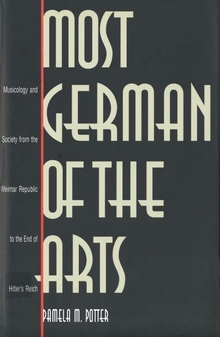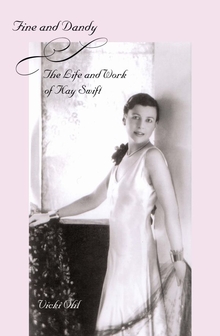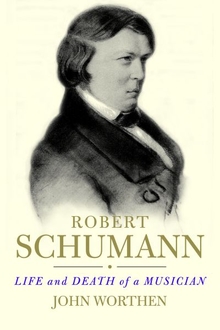Most German of the Arts
WARNING
You are viewing an older version of the Yalebooks website. Please visit out new website with more updated information and a better user experience: https://www.yalebooks.com
Musicology and Society from the Weimar Republic to the End of Hitler`s Reich
Pamela M. Potter
Potter reveals that prominent German musicologists went beyond other scholars in serving the state by publicizing the German musical legacy as a source of national pride; exploring politically relevant research topics, including pseudo-scientific race theories; and participating in the Germanization of occupied and annexed territories during World War II. Nazi leaders recognized musicology’s potential service to Nazi causes, says Potter, and musicological ventures enjoyed generous support from the government, party, and SS. Scrutinizing private papers, archives, and rare publications, Potter breaks the silence imposed by the postwar German musicological establishment and demonstrates the extent to which the entire profession was politicized during the Nazi era.
"A significant and timely book—the first large-scale study devoted to this problematic subject."—Joan Evans, Wilfrid Laurier University
"This study is an excellent contribution to the growing body of literature on the arts in 20th century Germany. Its particular value is that it transcends the narrow limits of musicology as an academic discipline and uses it as a mirror to reflect fascist perversions in music, and art as well as society at large, in Germany from the first World War to the end of the second."—Michael H. Kater, Distinguished Research Professor of History, York University
“This book offers the non-specialist a lucid and richly documented account of a distinct though representative scholarly discipline in transition from the Weimar Republic to Adolf Hitler’s Reich. . . . A significant contribution to a debate that will not cease with the publication of the book.”—Michael Meyer, American Historical Review
“Pamela Potter is to be commended for this book that now takes its place as a standard work on the political culture of the Third Reich.”—Jay W. Baird, Central European History
"Pamela M. Potter examines the social, economic, and intellectual factors that caused some prominent German musicologists to venture beyond the academy to work for the Nazi cause—in the name of spreading German musical culture and preserving its heritage."—Chamber Music
"This well-researched and coherently argued book documents how musicologists who explored topics supported by the Nazis leadership—which was interested in musicology’s potential—garnered support from the government, the Nazi party, and the SS."—Choice
"The discussions of musicological organization and methodology in Germany from the end of World War I to the end of World War II are crammed with detail that will be of value—great value, to be sure—mainly to specialists. Still, they are not unduly technical, and they tell a fascinating tale of a discipline still young, undefined and insecure trying to prove its usefulness, to survive in shifting and ultimately dangerous waters."—James R. Oestreich, New York Times
"This is clearly a book by a musicologist, about musicologists, and for musicologists."—Christopher Hailey, Notes
Publication Date: August 11, 1998








